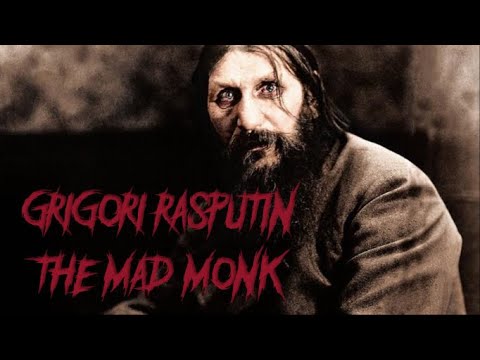Grigori Rasputin was a Russian mystic who gained significant influence in the court of Tsar Nicholas II and his wife, Alexandra, during the early 20th century. He was seen by many as a controversial figure, with rumors circulating that he had the ability to heal the tsar’s hemophiliac son and was using his position to gain political power. Despite this, Rasputin’s true character and motivations are still debated to this day.
Born in 1869, Rasputin was raised in a peasant family in Siberia. He gained a reputation as a wandering holy man and faith healer, and eventually made his way to St. Petersburg, where he became known for his eccentric behavior and alleged healing abilities. It was there that he caught the attention of Alexandra, who was desperate to find a cure for her son’s hemophilia.
Rasputin’s influence over the royal family grew quickly, as he seemed to be able to alleviate the young prince’s symptoms during times of crisis. This led to him becoming a close confidant of Alexandra and a target of suspicion and hostility from the Russian aristocracy. Many accused him of using his power to further his own interests, such as gaining political influence and even sexual favors from Alexandra.
As Russia headed towards revolution, Rasputin’s presence in the court became increasingly controversial. Many believed that he was responsible for the worsening political and economic situation in the country, and he was eventually assassinated in 1916 by a group of aristocrats who saw him as a threat to the stability of the country. Despite his controversial reputation, Rasputin remains a fascinating figure in history. His mysticism and influence over the royal family continue to intrigue people today, and his true motivations and character are still hotly debated by historians and scholars alike.
Although Rasputin was notorious for his controversial reputation, his impact on Tsar Nicholas and the royal family cannot be overlooked. He was viewed by many as a mystic and a healer, and his ability to alleviate the suffering of Tsarina Alexandra’s son, Alexei, who suffered from hemophilia, made him indispensable to the royal family. Rasputin’s hold over the Tsar and his wife was so strong that he was even given a position of influence within the government, despite having no official title.
Rasputin’s downfall came in 1916 when a group of nobles, led by Prince Felix Yusupov, conspired to kill him. They invited Rasputin to Yusupov’s palace under the guise of a party, but their real intent was to poison him. When the poison failed to work, they shot him several times, beat him, and threw him into the river, where he ultimately drowned. Rasputin’s death only added to his legend and fueled conspiracy theories that he was difficult to kill because of supernatural powers.
Many legends and myths have been associated with Rasputin, with some people claiming that he possessed supernatural powers. He was known for his heavy drinking, womanizing, and his charisma, which allowed him to gain influence over the royal family. Moreover, he also had a reputation for being a healer and was able to treat the tsar’s son, Alexei, who suffered from hemophilia. However, his methods were unorthodox and involved chanting and prayer, rather than traditional medicine.
Rasputin’s growing influence over the royal family alarmed many members of the Russian aristocracy and the church, who saw him as a corrupting influence on the Tsar and his family. In 1914, he was exiled to Siberia, but he was later invited back to the royal court due to his success in treating Alexei’s hemophilia.
However, Rasputin’s return to the court only fueled the resentment of those who opposed him. On December 30, 1916, a group of nobles led by Prince Felix Yusupov invited Rasputin to Yusupov’s palace and attempted to kill him. Yusupov offered Rasputin food and wine laced with cyanide, but to their surprise, he showed no ill effects. The conspirators then shot him multiple times and beat him, but Rasputin continued to fight back until they finally killed him by drowning him in the river.
The murder of Rasputin did not solve the problems facing the Russian monarchy, and in fact, it may have made them worse. Many people saw the murder as a sign of the nobles’ corruption and cruelty, and it contributed to the growing unrest and dissatisfaction among the Russian people. Less than a year later, the Russian Revolution would break out, and the Romanov dynasty would be overthrown.
Despite his controversial reputation, Rasputin continues to be a fascinating and mysterious figure in history. His influence over the royal family, his unorthodox methods of healing, and his dramatic assassination have all contributed to his enduring legacy. To this day, Rasputin remains a fascinating figure in history, remembered as a mystic, a healer, and a manipulator. His influence on the Tsar and his family, as well as his ultimate demise, continue to captivate historians and the public alike.
